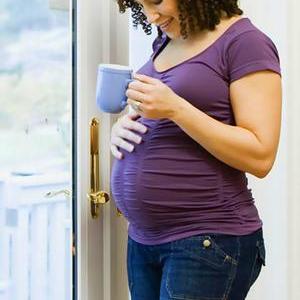Caffeine and Pregnancy

When it comes to caffeine no topic is as controversial then how caffeine effects human reproduction. It has been the topic of many studies and of continuing scientific research. And while what we know about how caffeine effects child birth is always evolving, this article will try to outline the facts about what we know today.
In 1980 the Food and Drug Administration advised pregnant women to limit their intake of caffeine. And that's about as detailed as they got. They never specified how much caffeine was would be considered safe. They never said if caffeine could be more damaging to the fetus during different stages of a pregnancy. And they didn't specify anything about the possible side effects of caffeine consumption during pregnancy.
In the last 35+ years, we've learned a LOT more about all this. But the results of all the research are still consistent about one thing: large doses of caffeine will effect a pregnancy.
Caffeine Can Effect the Ability to Conceive
A number have studies have shown that there is a strong link between high levels of caffeine intake (300 mg per day or more) and and an increased risk of infertility [1]. This doesn't mean its a major cause of infertility, but it can be a contributing factor and it's enough of a factor that couples who are already having difficulty conceaving should cut the caffeine consumption when they are trying to become pregnant.
- In women, caffeine can interrupt the timing of the menstrual cycle.
- In men, sperm motility may be reduced.
Caffeine and Congenital Defects
To date, no studies have shown any direct correlation between maternal caffeine intake (even at the high doses) and congenital abnormalities of the fetus.
Caffeine and Premature Labor
There is no evidence that caffeine consumption during pregnancy will cause premature labor and delivery.
Effects to the Fetus
Caffeine crosses the placenta to your baby. So, since the fetus is linked to mom, maternal consumption of caffeine will pass caffeine though to the baby. Its been found that consuming caffeine while pregnant will cause the fetus to stay awake longer giving them less active sleep.
Additionally, they found that newborns of women consuming caffeine had a 25% chance of having cardiac tachyarrhythmia. Tachyarrhythmia is a the medical term of a 'disturbance of the heart rhythm in which the heart rate is abnormally increased'. Compared to the standard rate of 2% for women who were not consuming caffeine[2].
Summary
"The less caffeine you consume, the better. Some experts say more than 150 mg of caffeine a day is too much, while others say more than 300 mg a day is too much. Avoiding caffeine as much as possible is your safest course of action. If you must get your fix, it is best to discuss this with your health care provider to make the healthiest choice for you and your baby."

